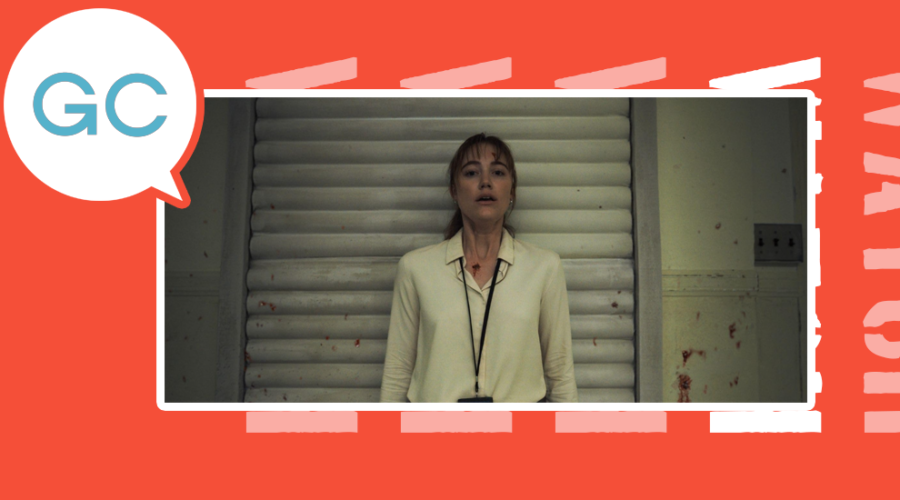If you’re a horror fan like me — with normal friends and family, who won’t jump at the chance to see a tale of terror with you on the big screen — I have some good news. Longlegs is now streaming.
It’s a beautifully shot movie, set mostly in the 1990s, an era we have all been heavily nostalgizing as of late, but it has a bleak heart and I still don’t recommend watching it alone. Especially because the film really nails down how terrifying loneliness can be, and not just physical loneliness, but the gulf that can suddenly appear between people who are supposed to love each other most, between families.
The premise centers on a hideous killer named Longlegs — another one of those roles that Nicholas Cage was born to play — who wipes out entire families without being present at the actual crime scenes, and the FBI agent who hunts him while slowly coming to grips with the fact that she has a personal connection to the investigation.
I’ve seen the heroine, Maika Monroe’s Lee Harker, get compared to Clarice Starling, but to be honest, that’s mostly a trick of aesthetics — the no-frills ponytail and the haunted past glimmering behind the eyes. Harker is her own woman, a brilliant and stunted one, with a deep connection to the unconscious, to things that go bump in the night. This is not a detective story, it’s more like a childhood nightmare come to life, a fairy tale of the sort that kids shouldn’t read, but occasionally do anyway.
Maika Monroe has been one of my favorite horror actors since the terrific It Follows (here’s more good news, there’s going to be a sequel), and while some people complain that she should make the jump to more “serious” cinema, I think she’s right where she belongs. Anyway, the best horror is serious as hell.
To discuss the plot too much would do the film an injustice, but I think one of the most pivotal moments is when Longlegs is alone, driving in the car, screaming at mommy and daddy to “unmake” him, and “save [him] from the hell of living.”
The Bible calls Satan “the father of lies,” as well as “the great accuser,” and one of his most pernicious lies is the idea that life isn’t worth it, that God was a chump for creating it in the first place. That sense of despair is contained within the greatest tragedies the world has known. What does it mean to give up on life? Well, for some people, it’s to kill their own family and then themselves, of course.
And what do friends and neighbors say in many of these cases? “We had no idea. They seemed happy.”
Longlegs takes a hard look at such cases and explores the monstrousness behind them. It’s a supernatural story in many ways, but in other ways, it’s also a chillingly common one.
It’s also a story about the deals that are made with the devil — and whether you’re religious or not, I think everyone can appreciate the burden of an impossible bargain, as well as the way in which such bargains change us over time.
Even if you want to be good, even if you have only the best intentions, each one of us is forced into compromise at one point or another. That’s because the world, as Longlegs suggests, is steeped in evil, and even the best of us might as well get used to it.
My one complaint about Longlegs is that it’s simply too dark, and I don’t mean thematically. There is a lot of writing on the subject, and how digital cameras have influenced this trend of leeching all light from the picture, but to be honest, it comes down to aesthetic choice, and it’s annoying.
If you stream this movie, you’re going to want to turn out the lights to better appreciate writer and director Oz Perkins’ vision. Unfortunately, that also makes it much, much scarier.
And maybe that’s the point.

